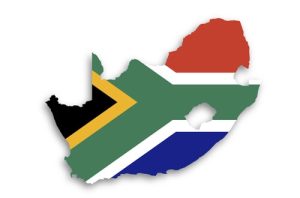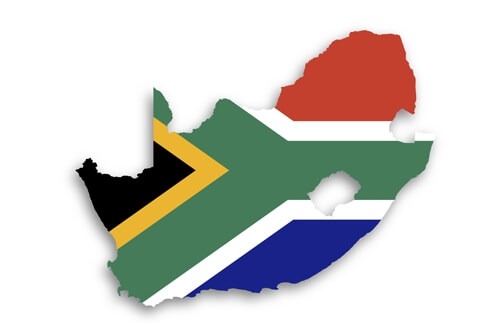
While going international may seem like the next big step for a thriving business, expanding locally might be the better strategy for your SME.
Jason Goldberg says the local market still presents opportunities for local businesses – and scaling internationally may not be for everyone.
Goldberg is the founding director of Edge Growth which specialises in enterprise and supplier development, BEE compliance and SME development. He is also the co-founder of the Vumela Fund, a social venture capital fund which Edge Growth manages in partnership with FNB, and the the founder of 10x-e, a accelerator programme targeted at high growth entrepreneurs.
Goldberg says many entrepreneurs considering expanding internationally often overestimate the opportunities that are available in other countries.
IMAGE SUPPLIED
Jason Goldberg, founder of Edge Growth
“The main issue is the ‘grass is greener’ fallacy. It looks like opportunity here is smaller, and harder; and over there it’s bigger and easier. It’s rarely true when all things are considered (like existing competition). It also looks like you can do the same thing you do here, there, and do it well. That’s also rarely true,” he says.
There are plenty of reasons to take advantage of what the South African market has to offer. Despite a challenging economy which is projected to grow 0.2% – the country was listed by Business Live as one of 2017’s most promising emerging markets for investors together with Russia and India.
South Africa also remains a firm favourite for international brands looking to test the African market including Dunkin’ Donuts, Krispy Kreme, Starbucks and clothing retailer H&M.
Soon after the launch of Starbucks in 2016 its CEO Howard Schultz in an interview with BizNis Africa, said they were exploring Africa because of its emerging middle class.
There are also local brands that see the value of staying home, such as South African coffee brand Motherland Coffee Company. Its co-founder Sebastian Schneider, in a recent interview with SME South Africa said their current focus was on expanding the brand locally.
“There’s no reason to look abroad when there are opportunities here. A lot of guys abroad are looking here, so look here before looking elsewhere.”
Still think the grass is greener elsewhere? Here are 9 reasons from Goldberg why that may not necessarily be true.
1. You Lose Your ‘Local Connections’
“You lose some of your most valuable assets as an entrepreneurial leader – the market and industry context that helps you make good, informed decisions, fast, and the reputation and networks that create opportunities and give you access to resources. These things mostly do not translate into other markets. So you will make mistakes, burn through cash, and (in most cases) land up going back home with your tail between your legs.”
2. You Will Make Expensive Mistakes
“In the real world, so much is different there (abroad) that you will pay two years worth of school fees, [lose] a lot of money while you fail to get traction and learn to adapt to the new environment, and at the same time deprive your business back home of the resources being pumped into international markets.”
3. The Competition May Be Tougher Than You Think
“You’ll discover that competition over there is much more intense than you thought it was.”
4. You Lose The Benefit Of Your Local Knowledge
“You have local knowledge, so you make better decisions that are more likely to work – things like how to go to market, how and where to source resources and talent, etc.”
5. You Are Familiar With Local Policies And Regulations
“You know the local regulations and how to navigate local ‘red tape’, so you’re less likely to break the law and incur fines.”
6. You Lose Your Competitive Advantage
“You have a much better understanding of how to win. You’ve built up a massive ‘internal library’ of tacit knowledge that enables you to make good, quick judgment calls on issues like how the market works, how customers think, who competitors are, what they’re good at, how the market ‘thinks’, what infrastructure you can rely on to deliver and therefore what you need to do internally vs. what you should outsource. [You also know] what things cost, and a thousand other such data points. When you go to new markets, you often rely on the same tacit data to make swift judgment calls, but you will discover the hard way that a number of things work very differently.”
7. Access To Human Capital May Be More Difficult
“It’s easier to get hiring right. Most critically, you have a strong network of talent in your personal network who can do a lot of the most important jobs in your business. This is by far the best way to hire and avoid hiring mistakes when the stakes are too high – which they always are when scaling a business. You have a strong network of people to phone to get a ‘first hand reference’ on most candidates (within your first or second degree network), within 3-5 phone calls. You also have a strong sense of ‘what’s normal’ in your operating environment, so you are more likely to judge social cues accurately in interviews.”
8. The Currency Is On Your Side
“You can match capital (at home) to the cost base (at home). Raising capital in rands and building an office in dollars or euros is a really bad idea most of the time.”
9. Your Business May Not Be Innovative Enough To Go International
“For truly disruptive businesses with new technology to solve problems 10 times better, going global might be the right thing to do, but for less innovative companies, it’s not.”






